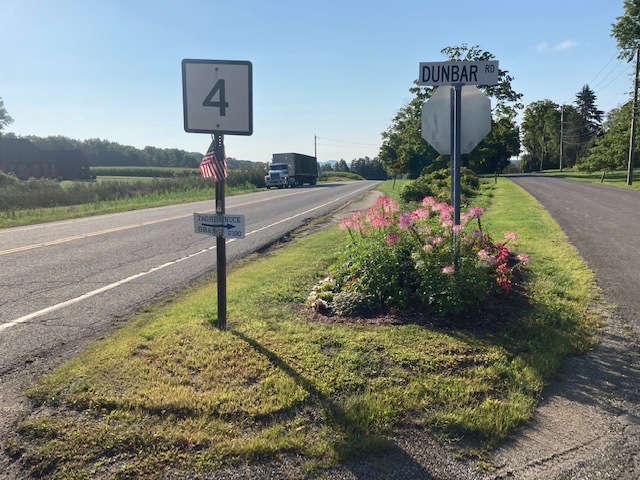
Gas Station Attack by Uninsured Truck Driver
Having represented truck drivers attacked, shot and injured at gas stations, Herndon Virginia injury lawyer Doug Landau was particularly interested in the Federal Court’s September 9, 2020 opinion in the case of Mullins v. Harco National Insurance Co.
The injured victim pulled into the truck fueling station before sunrise, and was assaulted by the Defendant commercial truck driver who took issue with the Plaintiff’s using two pumps at the same time to fill up his truck tanks more quickly. The Defendant asked the Plaintiff to shut off one of the pumps so that he could use it to fuel his truck. The Plaintiff was preparing to shut off the fuel pump when the defendant confronted him about how long it was taking. Thereafter, the Defendant attacked the Plaintiff, punching him and throwing him to the ground.

The Plaintiff sued the Defendant truck driver and his employer in King William County Circuit Court, and the jury’s verdict was in the amount of $1,250,000. However, there was no liability insurance available to pay the judgement. Usually, when the Defendants do not have sufficient, or any, liability insurance, the Plaintiff can proceed against the Uninsured (“UM”) or UNDERinsured (UIM”) motorist coverage on the vehicle or that they may have in their household.
To determine the rights and responsibilities of the parties to a contract, the policy itself must be read closely. “Reading insurance contracts is not very exciting, but it is something that must be done whenever there is a dispute as to the policy language,” notes lawyer Landau. “What the insurance company may give you in the large print at the beginning of the policy, they may reduce in the fine print at the end of the document! Most drivers never read their car or truck insurance policies and they have no idea that they are paying premiums for very little coverage or protection with lots of exceptions and traps for the unwary.” Landau, who has been a contracts law prizewinner, notes that the law regarding what is and what is not considered the “use” of a car or truck can be very fact specific.
In the Mullins case, the insurance policy defined an “insured” as one “occupying” a covered auto. “Occupying” was defined as “in, upon, using, getting in, on, out of or off.” The Federal Court judge ruled that the Defendant truck driver was not acting as an “operator” of a motor vehicle under the plain meaning of the policy at the time he punched out the Plaintiff. Under Virginia law, the judge said, the operator must be using the “vehicle as a vehicle” to trigger UM coverage under the contract of insurance. The Federal Judge, Hannah Lauck, wrote, “An attenuated connection between the use of the vehicle and the complained injury will not suffice.”
Critical to the court’s decision was the fact that from the time the Plaintiff first got out of his truck until the start of the physical altercation, he never fully reentered the truck, turned it on or otherwise sought to use the “vehicle as a vehicle,” Lauck said. “More importantly, the Defendant truck driver did not utilize the vehicle, or any component part of the vehicle, during the attack on Mr. Mullins. The trial court record showed that the attacker threw Plaintiff further away from the truck during the course of the altercation,” Lauck wrote. The judge noted that, “The proximate cause of Mullins’ injuries was a physical altercation which bore little, if any connection to the presence of an uninsured motor vehicle.”
The plaintiff’s lawyer argued that the presence of the trucks at the fuel station was the “specific cause” of the incident. The vehicle was not a mere enclosure for the incident or simply the site of the attack—it was the specific cause of the incident. Fueling is the “use of a vehicle” as a vehicle, it was argued. The dispute “was causally connected to fueling and thus could not have happened anywhere other than at or near fuel pumps,” wrote Plaintiff’s counsel, Marc Peritz, of Charlottesville.
“This argument does not persuade,” Judge Lauck said. “While [the Defendant]’s motive for assaulting Mullins might have been linked to his desire to fuel his vehicle, it does not render him an operator under the terms of the Policy,” the judge wrote. A “but-for” causation theory would not establish liability, she wrote. The end result? A critically injured Virginia truck driver is not covered by his employer’s uninsured motorist policy on the truck he was servicing at the time he was injured, even though the 2015 assault that put him in the hospital arose from a dispute over the way he was fueling his truck.
The Federal court judge ruled that the attack lacked the necessary connection to the use of the truck by the Defendant attacker. The Abrams Landau truck and car injury team wonders if this ruling will mean that drivers injured while adding oil to their car or getting into arguments when pulled in to put air in their tires will likewise be barred from getting the benefit of the insurance that they and/or their employers may have paid for in order to have that protection. Needless to say, this is a troubling decision, if indeed the law is supposed to review such contracts in favor of coverage.
If you or someone you know or care for has been injured as the result of a car or truck accident, whether on the job or while working off site, and there are questions as to what laws apply, please give us a call (703-796-9555) or email us at Abrams Landau, Ltd.
